Plateforme e-learning IDEP
Institut africain de développement économique et de planification




Promouvoir l'apprentissage
Apportez le tutorat directement à votre domicile.
Prenez les meilleurs cours du monde, en ligne.
Apprendre et s'amuser pour tout le monde.
Institut africain de développement économique et de planification
Depuis sa création, l’IDEP aide les gouvernements africains dans leurs efforts de formation et de renforcement des capacités dans les domaines de la gestion et de la planification économiques. À cet égard, il travaille en étroite collaboration avec les États membres africains pour évaluer leurs besoins et développer des cours généraux, spécialisés et adaptés à leurs cadres de niveaux moyen et supérieur.

Les noms dont nous sommes fiers

The course is composed of six modules that cover different aspects of green technologies, including the design, implementation, financing and policy themes around them. These modules are carefully selected with the intention of equipping owners and managers of African micro, small and medium sized enterprises (MSMEs) with the latest knowledge in the theory and practice of green technologies. The course will include lectures that provide trainees with a comprehensive overview of relevant concepts and analytical tools, critically assess relevant policy developments, and introduce best practices for developing and implementing green innovations. This will be backed by interactive sessions through group activities, workshops and online forms that will allow participants to apply what they learned on practically useful real-life projects.
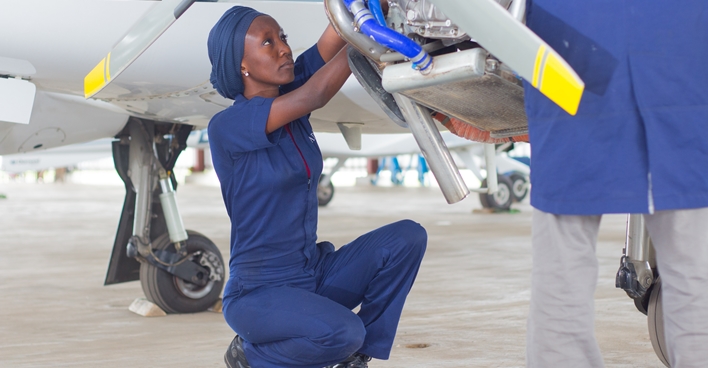


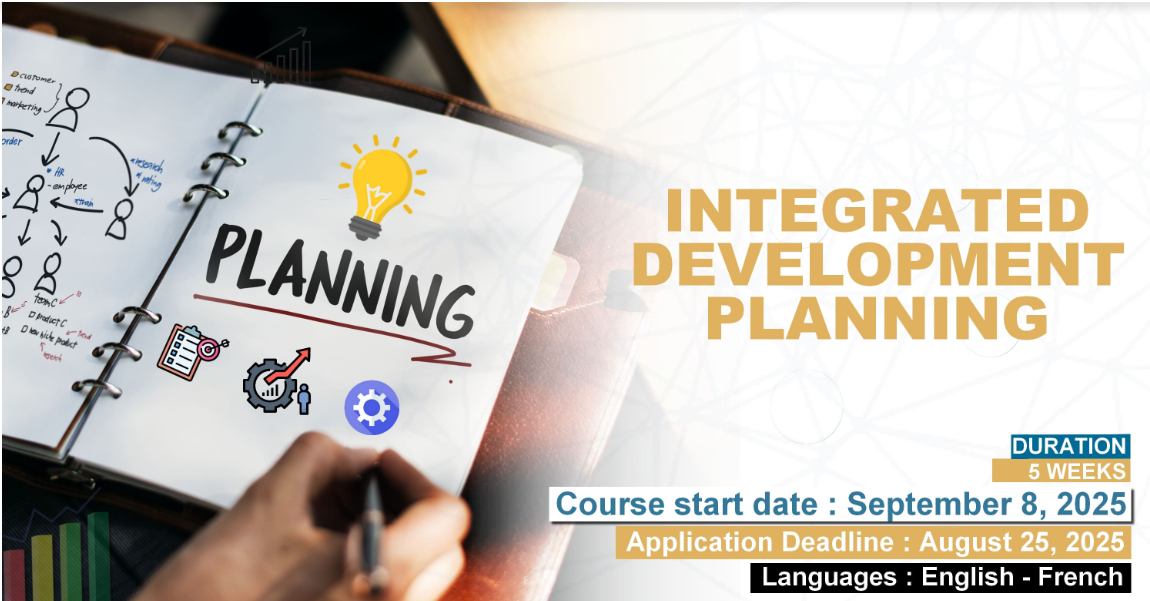
Africa's development is constrained by several interrelated factors that prevent the continent from reaching its full potential. The main challenges relate to limited economic diversification and production capacity, demographic pressures and the resulting social demands, and the effects of climate change. In addition, the continent is vulnerable to the impact of poor governance, recurrent political instability, and geopolitical tensions.
The course aims to strengthen participants' capacities on the integrated approach to development policy planning.
Specifically, the course will enable participants to:
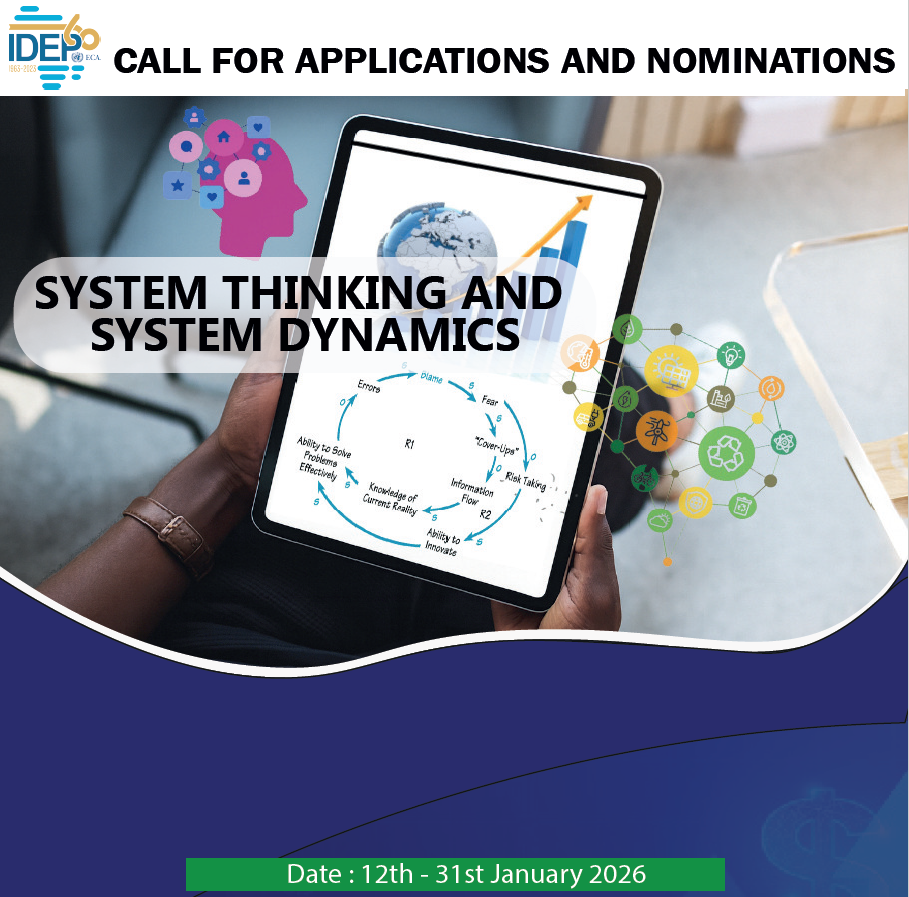
The 2030 Agenda for Sustainable Development, adopted by UN Member States in 2015, includes 17 Goals, 169 targets, and 231 indicators, and is anchored in human rights. The SDGs represent a shift from
the earlier Millennium Development Goals (2000–2015) by being more universal, transformative, inclusive, and comprehensive.
However, the pace of progress is falling short. According to The Sustainable Development Goals Report 2025, fewer than one in five (about 16.7 %) of SDG targets are currently on track globally. In 2025, an estimated 808 million people, roughly 9.9 % of the world population, are living in extreme poverty under the updated threshold of USD 3.00/day (2021 PPP). As far as gender equality is concerned, there is still a lot of work to be done; by 2030 approximately 351 million women and girls will still be living in extreme poverty (UNSD, 2025). Despite gains in education completion rates, 272 million children and youth remain out of school, and learning outcomes are worsening in many places. Conflicts and wars inflict a devastating toll on SDGs as the number of forcibly displaced and stateless people could reach 139.3 million across 136 countries and territories by end-2025 (UNHCR projections).
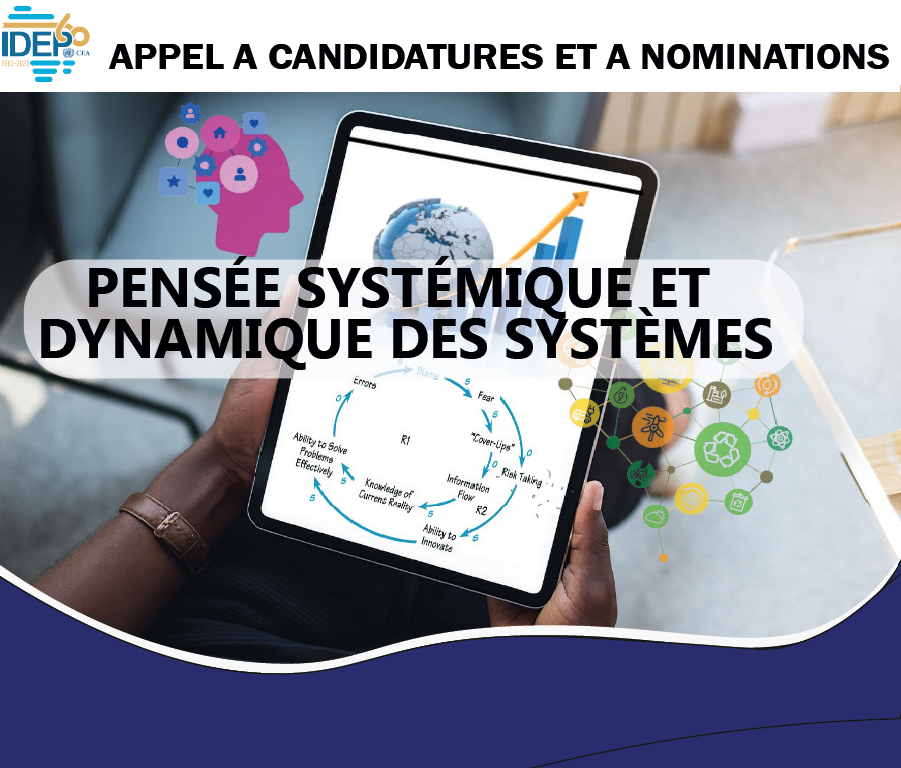

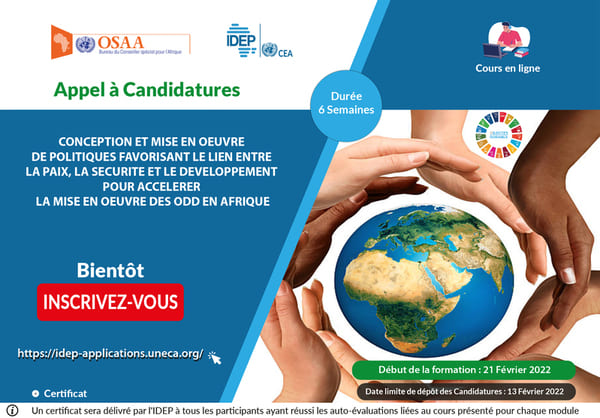












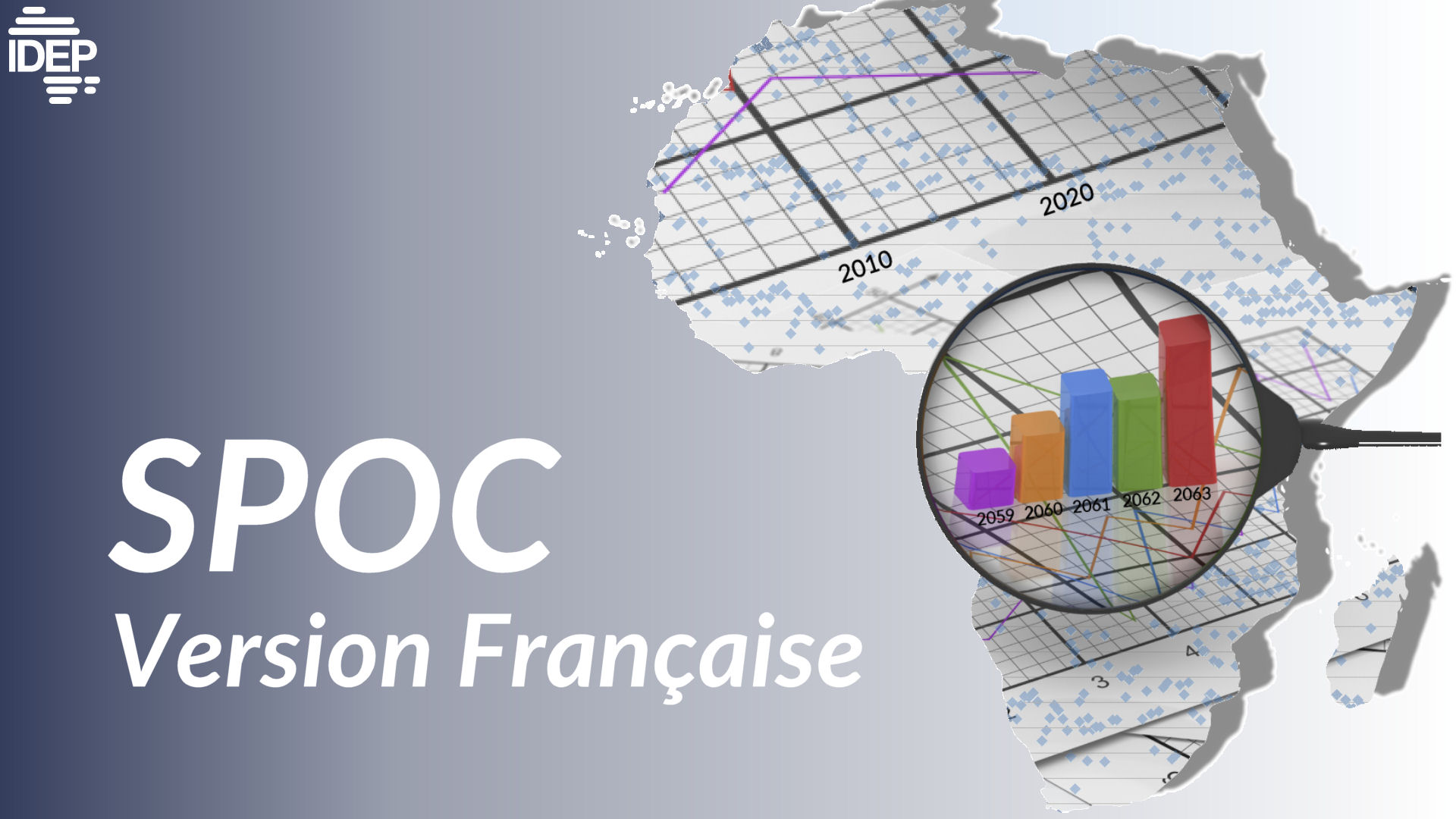
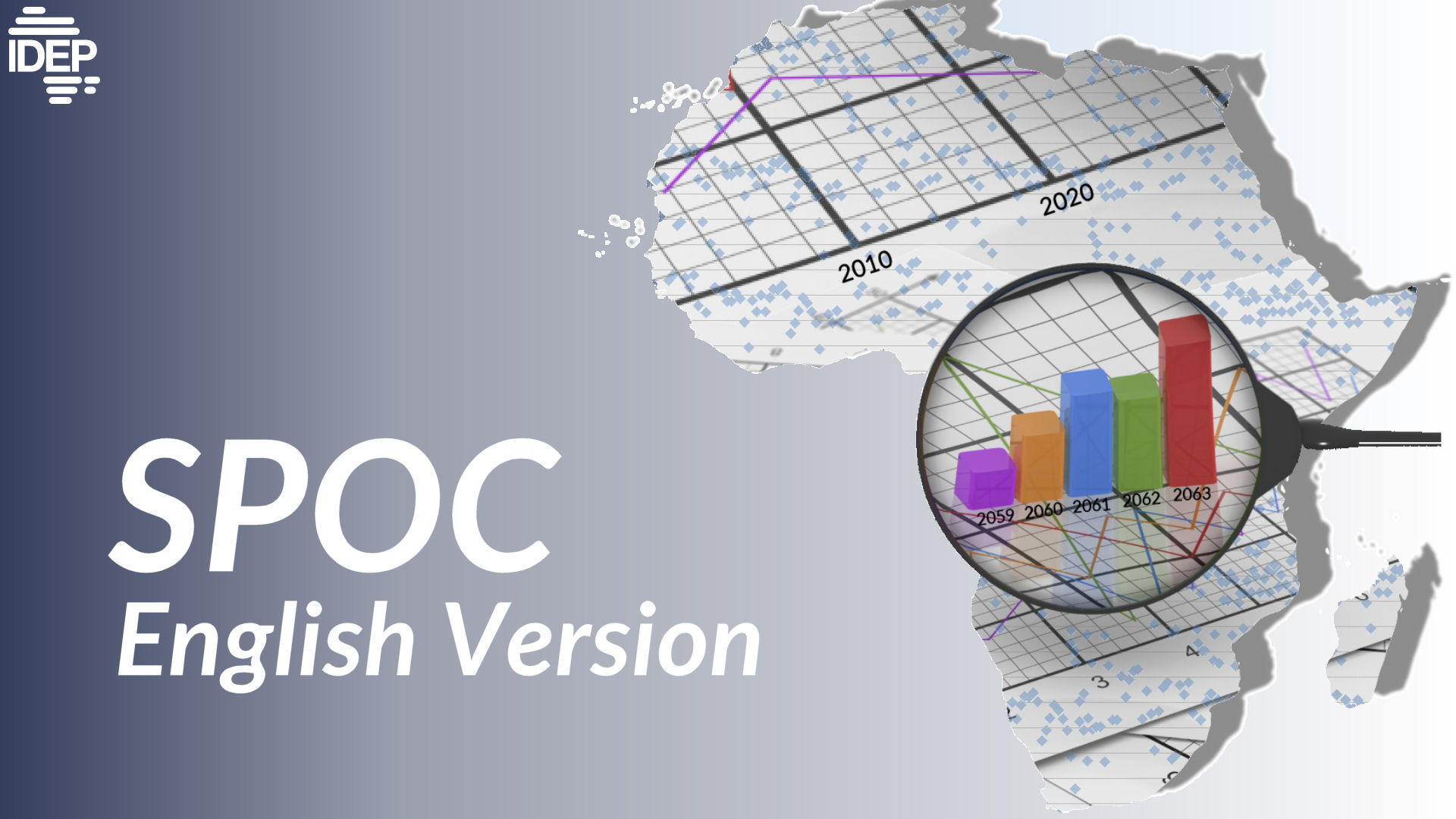
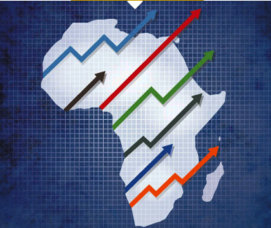

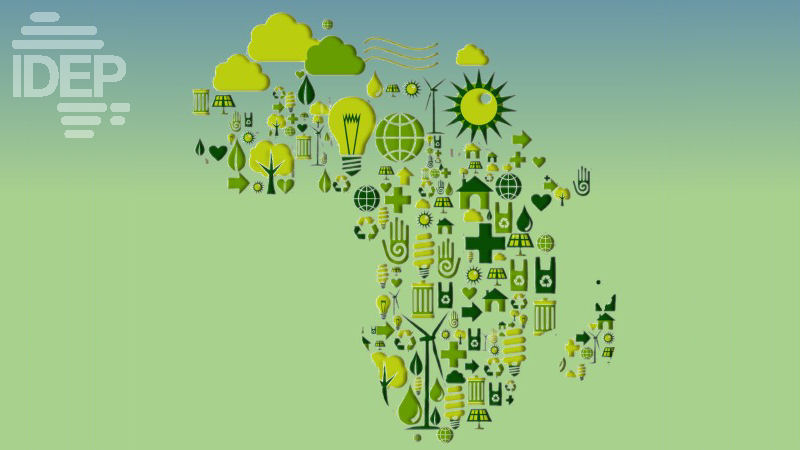
A la fin du cours, les participants seront en mesure de comprendre :

A la fin du cours, les participants seront en mesure de comprendre :
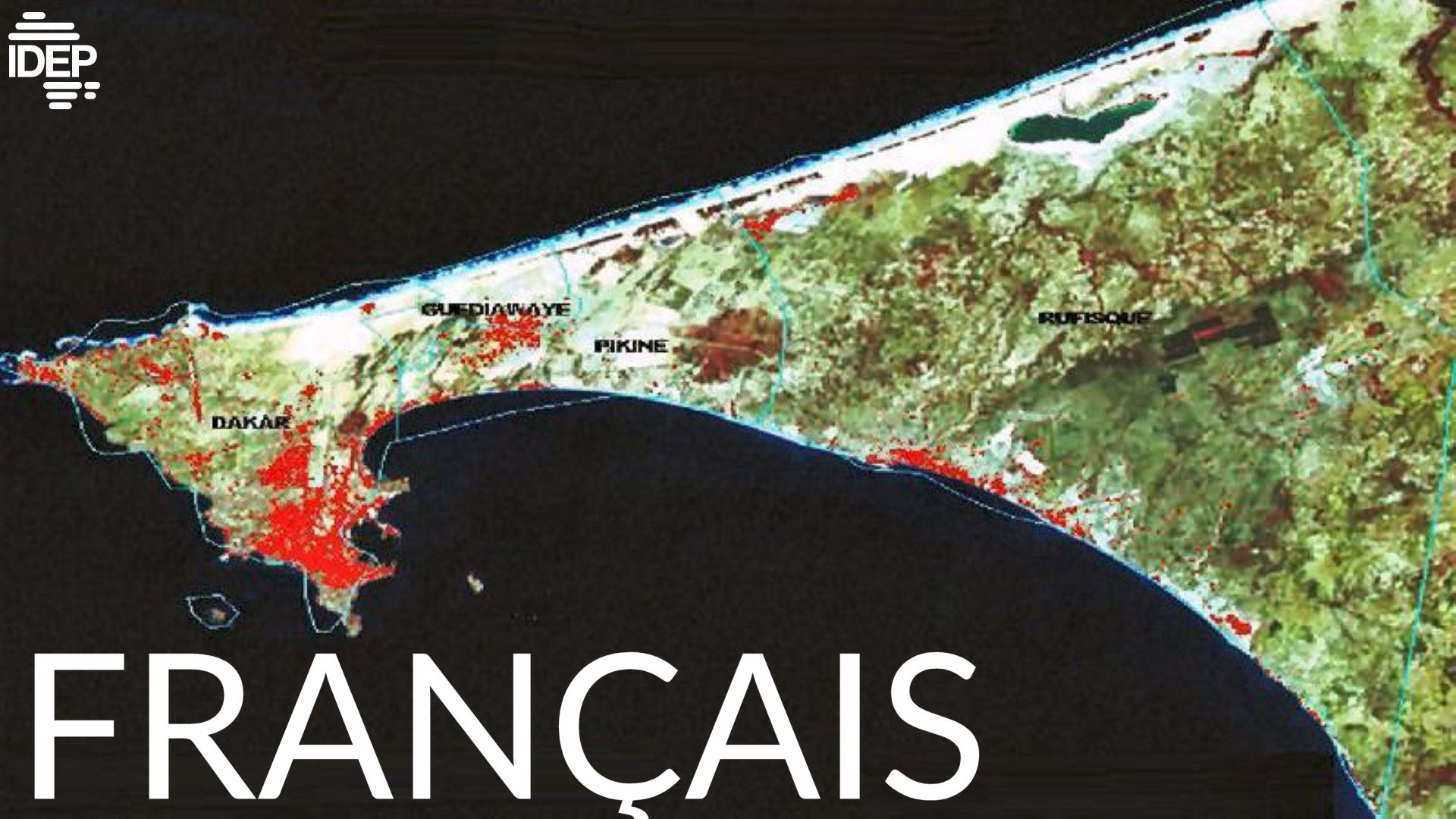
A la fin du cours, les participants seront en mesure :
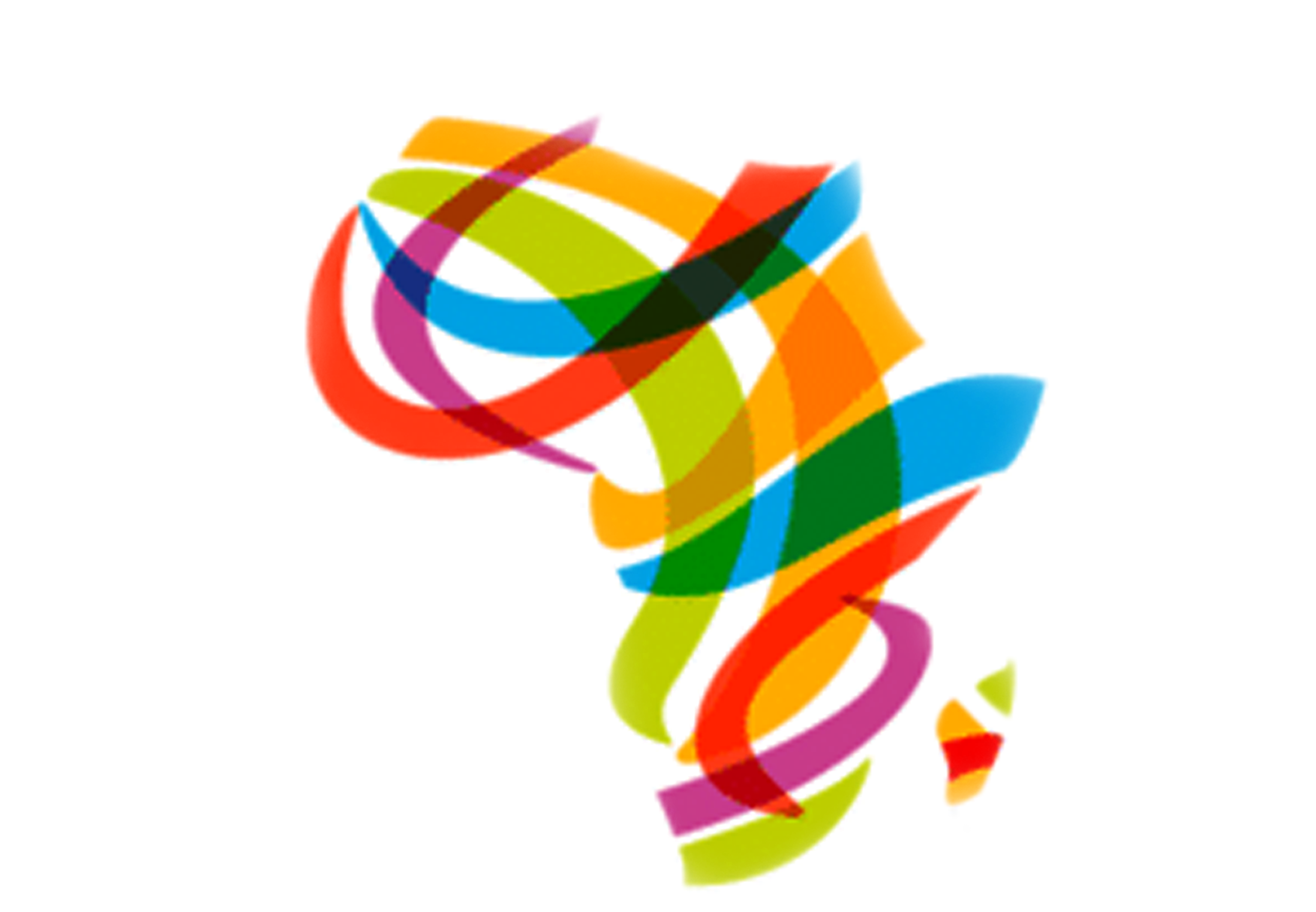

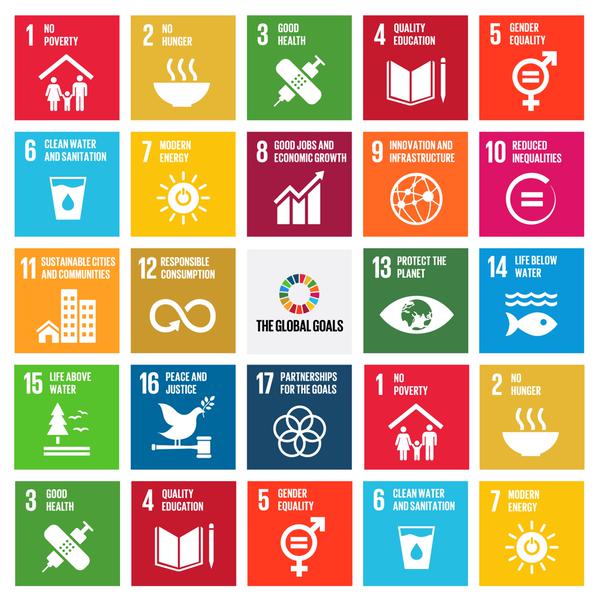
“The ‘New’ National Development Planning and Integrating the 2030 Agenda for Sustainable Development and Agenda 2063 : Challenges and Opportunities”
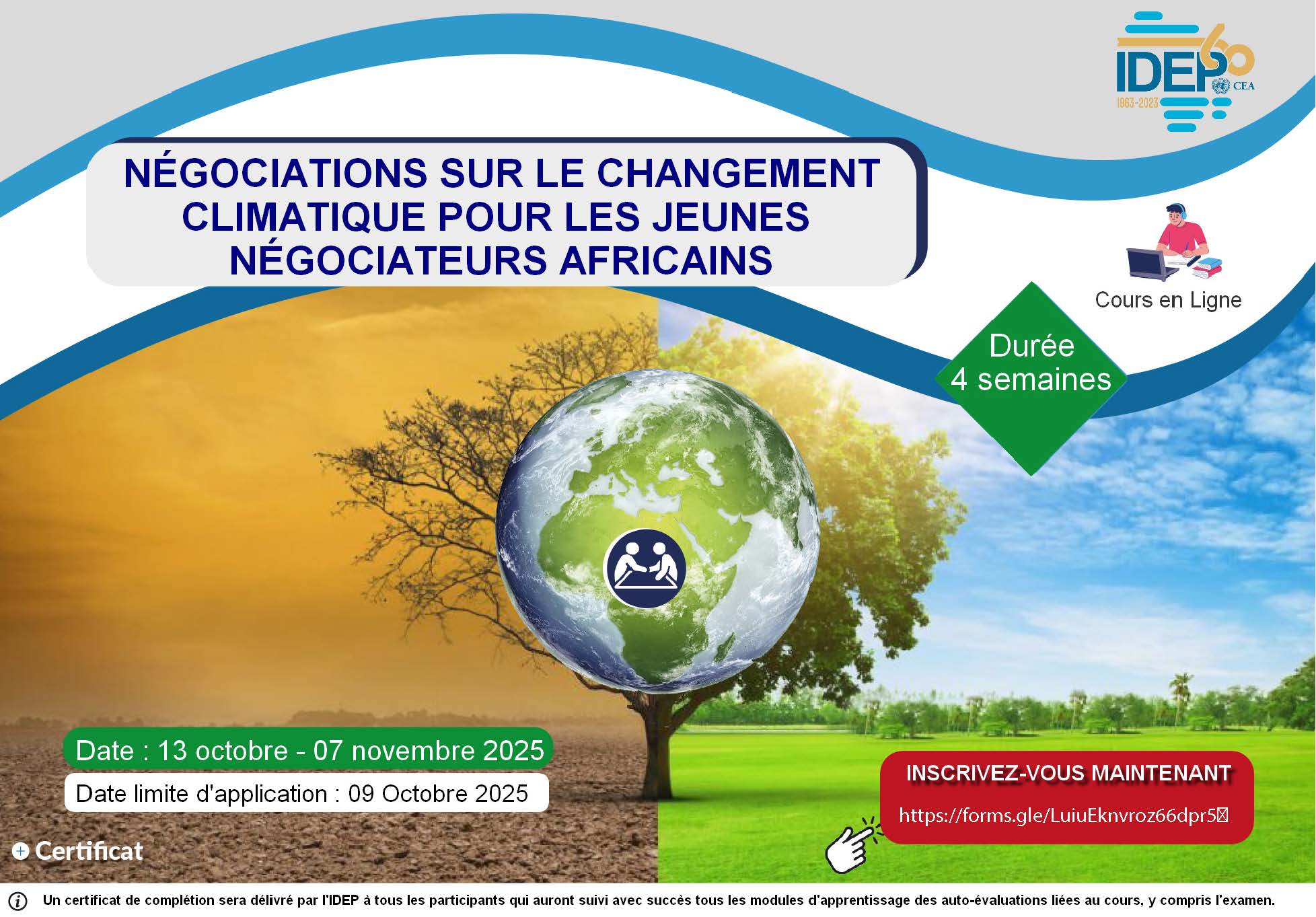
L'objectif de cette mission est de renforcer les capacités de négociation des jeunes négociateurs africains afin qu'ils participent pleinement à la mise en œuvre des différents chantiers dans le cadre de la Convention et de l'Accord de Paris.
En outre, le cours en ligne donnera à la jeunesse africaine les moyens d'entreprendre une action climatique vigoureuse et ambitieuse en utilisant le soutien fourni pour surmonter les difficultés liées au changement climatique, car les efforts actuels des parties et des acteurs non étatiques pour réduire les émissions de GES ne sont pas suffisants pour maintenir l'augmentation de la température en deçà de 1,5C.
À l'issue de la formation, les participants seront en mesure de :
a) Démontrer un haut niveau de compréhension de l'état actuel et en cours des négociations des programmes de travail dans des domaines tels que la transition juste, le financement du climat en mettant l'accent sur le financement de l'adaptation, l'évaluation des fonds existants, le suivi, le développement de projets et le contrôle et l'évaluation. Renforcer les capacités dans l’appréhension de la dimension numérique pour les politiques publiques
b) Expliquer clairement les négociations en cours sur l'opérationnalisation du fonds pour les pertes et dommages ainsi que son évaluation et la négociation des marchés du carbone
c) Avoir une connaissance approfondie des chantiers et des programmes de la Convention-cadre des Nations unies sur les changements climatiques (CCNUCC) et du processus de négociation de l'Accord de Paris sur le Genre et la Jeunesse
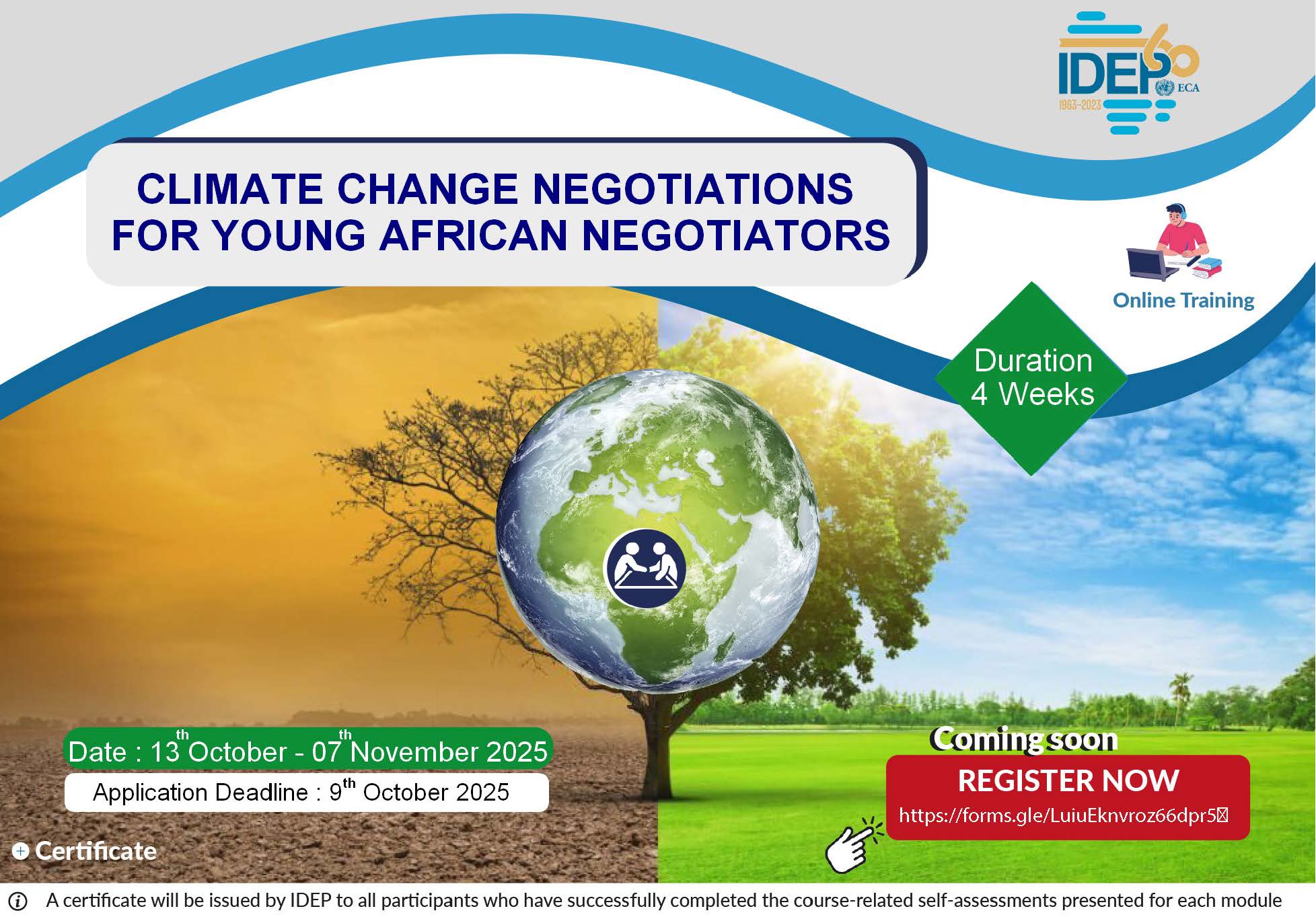
The multilateral climate change processes have evolved over time from the non-binding commitment under UN Convention to the legally binding commitments for developed countries under the Kyoto Protocol and to the Paris Agreement (PA) that build upon the convention and brings all nations into a common cause to undertake ambitious efforts to combat climate change and adapt to its effects, with enhanced support to assist developing countries. The PA also address the issues of loss and damage.
Following the completion of the PA’s rulebook, the process is now focusing on the implementation of mitigation and adaptation with enhanced support to assist developing countries to achieve their commitments. The PA added the loss and damage into its workstream. This online training will deal with negotiation of work programmes under the following areas; just transition; adaptation mainly dealing with adaptation finance and capacity; operationalization of the loss and damage fund and its assessment; negotiating carbon markets; climate finance in the context of financing adaptation, assess to existing funds, methods of tracking, project development, monitoring and evaluation, gender and youth.





